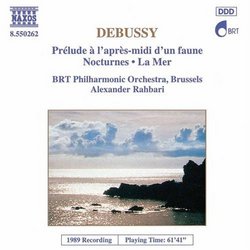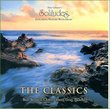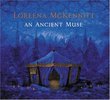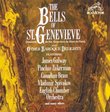| All Artists: Claude Debussy, Alexander Rahbari, Brussels BRTN Philharmonic Orchestra Title: Debussy: Prélude à l'après-midi d'un faune; Nocturnes; La Mer Members Wishing: 0 Total Copies: 0 Label: Naxos Release Date: 6/30/1992 Genre: Classical Styles: Historical Periods, Modern, 20th, & 21st Century Number of Discs: 1 SwapaCD Credits: 1 UPC: 730099526227 |
Search - Claude Debussy, Alexander Rahbari, Brussels BRTN Philharmonic Orchestra :: Debussy: Prélude à l'après-midi d'un faune; Nocturnes; La Mer
 | Claude Debussy, Alexander Rahbari, Brussels BRTN Philharmonic Orchestra Debussy: Prélude à l'après-midi d'un faune; Nocturnes; La Mer Genre: Classical
|
Larger Image |
CD DetailsSimilar CDs
Similarly Requested CDs
|
CD ReviewsNaturalness and Coherence Leslie Richford | Selsingen, Lower Saxony | 05/07/2006 (4 out of 5 stars) "Claude Debussy (1862 ? 1918): Prelude a l?apres-midi d?un faune. Nocturnes. Le mer ? trois esquisses symphoniques. Performed by Jan van Reeth, flute; the BRT Choir (chorus master: Vic Nees); the BRT Philharmonic Orchestra, conducted by Alexander Rahbari.
Recorded in November, 1989, at the Concert Hall of the Belgian Radio and Television in Brussels. Naxos 8.550262. Total time: 63?08?. Claude Debussy never wrote anything that he called a ?symphony?, but both the Nocturnes and, particularly, ?La Mer? can be listened to as something approaching symphonies. Or, on the other hand, you can listen to the instrumental colors and delicate nuances in the details of what Debussy wrote, losing perhaps something of the coherence of the whole but gaining an appreciation of the composer?s art of orchestration. I have spent most of my waking moments over the last 48 hours listening both to Alexander Rahbari?s recording of these pieces and to the similarly-priced Decca re-release of the 1987 recording made by the Cleveland Orchestra under Vladimir Ashkenazy (Universal 460 591-2). My feeling is that Rahbari captures the ?symphonic whole? rather better, while Ashkenazy?s recording enables one to take the second path and pay a good deal of attention to detail and individual orchestral effects. Perhaps this is because of the enormous difference in engineering technique: the cultured Decca recording was obviously made with pin-pointing microphones, capturing individual blocks of instruments as they have their special moments and putting them in the foreground ? and no-one would doubt that the Cleveland musicians are somewhat ?classier? than their Belgian counterparts. The Naxos engineering is, as is usual with Naxos recordings from this period, somewhat more difficult, offering, on the one hand, a very natural listening panorama with an exceptionally fine feeling of roominess, but needing, on the other hand, very good equipment to sound as it was intended. Personally, I found listening at the headphone-socket of my D/A converter to be the best way of getting into this music, and in the end I found myself preferring the Naxos disc for its naturalness and coherence, although the Decca, with its very different approach, can make listening to Debussy?s music an experience by showing up the detail more clearly. And, indeed, this is a matter of preference. If you are a musician studying Debussy, you will probably find the Decca/Ashkenazy much more inspiring; if, like me, you are an amateur music-lover coming to Debussy?s orchestral works for the first time, you may find listening to the Naxos/Rahbari helps you to find your way around in the woods without making you concentrate too much on individual trees. Perhaps I should add that both the flute part in the Prelude and the sixteen-voiced female choir in ?Sirenes? are done exceptionally well on the Naxos disc. Rahbari?s tempi are, as is his wont, slower than the competition?s, but nowhere did I find this in any way disturbing. Footnote: Unfortunately, I was unable to read the other Amazon review currently on the site because it is in Spanish, but I think we can nevertheless agree on a four-star evaluation." |

 Track Listings (7) - Disc #1
Track Listings (7) - Disc #1











